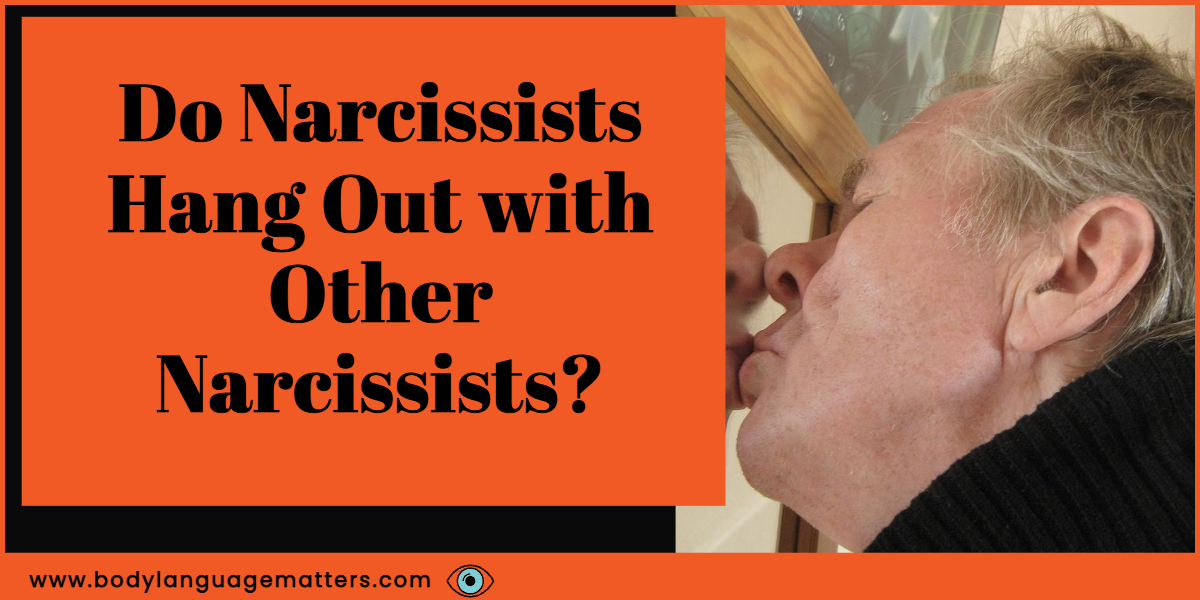Understanding whether narcissists tend to form relationships with other narcissists may help uncover the dynamics behind certain friendships and romantic partnerships.
In this article, we’ll delve into the attraction between narcissists, the intricacies of their relationships, and how to handle interactions with narcissistic individuals.
Understanding the Attraction Between Two Narcissists. ?
Why Do Narcissists Find One Another Attractive?
Narcissists may be attracted to one another due to their shared grandiose self-image, need for admiration, and self-absorbed nature. The saying “feather flock together” can apply to the attraction that narcissists may feel towards each other as they hold similar personality traits and share a common understanding of each other’s needs.
Common Interests and Traits Shared Between Narcissists.
Two narcissists may have similar interests, such as a thirst for admiration, social status, and control. According to the Big Five personality traits, narcissists score high in the “openness” category and low in “agreeableness.” They may also show signs of the dark triad – narcissism, Machiavellianism, and psychopathy. Narcissists can bond over a mutual understanding of their inflated sense of self and grandiose nature, which makes them compatible.
Exploring the Concept of “Feather Flock Together”
Feather flock together implies that people with similar characteristics or interests tend to hang out together. In recent studies, it has been demonstrated that narcissistic personalities are more likely to form friendships and romantic relationships with individuals who share the same grandiose views and self-centered attitude. A study of 290 pairs of best friends found that those with narcissistic traits shared various preferences, such as the need for power and attention.
The Dynamics of a Narcissistic Relationship. ??❤️???
How Superiority Complexes Affect Two Narcissists In Love.
The relationship between two narcissists can be intense and challenging, as both individuals may have a superiority complex and a constant need for validation. In their quest for admiration, they may use their partner for narcissistic supply and compete for dominance. This can lead to a volatile and unhealthy relationship dynamic where each individual tries to assert their importance over the other.
Identifying Characteristics of a Narcissistic Supply.
A narcissistic supply is the validation, admiration, and attention that a narcissist seeks from their partner or loved ones. In a relationship between two narcissists, both individuals may use each other for this purpose. This can result in a lack of genuine emotional intimacy, as both parties prioritize their individual needs over their partner’s emotional well-being.
Examining the Lack of Empathy and Intimacy in Narcissistic Relationships.
Narcissistic relationships often suffer from a lack of empathy and intuitive connection. The focus on self-importance can hinder the development of true intimacy and connection with their partner. The narcissist’s pursuit of validation may further contribute to an emotional gap within the relationship, preventing both individuals from building a strong bond based on mutual understanding and love.
How Covert and Overt Narcissists Differ in Relationships. ?
Understanding the Traits That Set Covert Narcissists Apart.
Covert, or vulnerable, narcissists differ from their overt counterparts in their approach to relationships. While overt narcissists are openly grandiose and self-absorbed, covert narcissists often hide behind a façade of vulnerability and insecurity. They may be more passive-aggressive, overly sensitive to criticism, and prone to playing the victim to gain sympathy and control.
Recognizing the Signs of a Relationship with an Overt Narcissist.
In a relationship with an overt narcissist, one may experience excessive arrogance, constant need for admiration, and a diminished sense of empathy. Overt narcissists can be domineering and controlling, which may become suffocating and damaging to the relationship.
Examples of How Covert and Overt Narcissists Interact.
A pairing of covert and overt narcissists can create a toxic and unstable dynamic. The covert narcissist may devalue the overt narcissist to boost their fragile self-esteem, while the overt narcissist may resort to belittling their partner to maintain their superiority and sense of control.
Loving Relationships and Narcissistic Tendencies. ❤️
Can Two Narcissists Have an Intimate and Loving Relationship?
While it is not impossible, two narcissists forming an intimate and loving relationship can be challenging. Overcoming the barriers of lack of empathy, competition, and the pursuit of self-interest requires both individuals to recognize their behaviors, seek professional help, and work on developing a genuine emotional connection with their partner.
Why Some People Attract Narcissists and Vice Versa.
Some individuals may be unknowingly drawn to narcissists due to codependency or a history of emotional trauma. Additionally, narcissists may seek out partners who are empathetic, nurturing, and accommodating to fulfill their emotional needs and validate their inflated sense of self.
Strategies for Achieving a Balance in a Narcissistic Relationship.
To achieve balance in a narcissistic relationship, both partners need to acknowledge their destructive behaviors, set boundaries, and actively work towards improving communication and mutual understanding. Professional help from psychologists may also play a critical role in fostering a healthier relationship dynamic.
Dealing With the Narcissist in Your Life. ??
How to Deal With a Narcissist in a Loving Relationship.
When dealing with a narcissistic partner, it is essential to establish healthy boundaries, focus on self-care, reinforce realistic expectations, and communicate honestly about the impact of the narcissist’s behavior. Supported by a psychologist, these strategies can help foster a healthier connection and minimize the impact of narcissistic tendencies on the partnership.
Recognizing When to End the Relationship with a Narcissist.
Ending a relationship with a narcissist may be necessary when emotional abuse, manipulation, and lack of empathy persist despite efforts to improve the relationship. It is crucial to prioritize one’s emotional well-being and seek support from friends, family, and mental health professionals during this process.
Tips from Psychologists on Handling Narcissistic Interactions.
Psychologists recommend the following tips for navigating interactions with narcissists: setting boundaries, practicing self-care, maintaining personal values, practicing active listening, and seeking professional help when necessary. These strategies can assist in better-managing relationships with narcissistic individuals and mitigating potential emotional harm.
Final Thoughts
Narcissists may be attracted to one another due to their shared traits and need for admiration. However, relationships between two narcissists can be challenging, as both individuals may have a superiority complex, lack of empathy, and a constant need for validation.
Covert and overt narcissists differ in their approach to relationships, with covert narcissists hiding behind a façade of vulnerability and insecurity.
To achieve balance in a narcissistic relationship, both partners need to acknowledge their destructive behaviors, set boundaries, and work on improving communication. When dealing with a narcissist, establishing healthy boundaries, focusing on self-care, and seeking professional help are essential strategies to maintain a healthier connection.
If you have found this article useful you may also find why narcissists have no friends.

